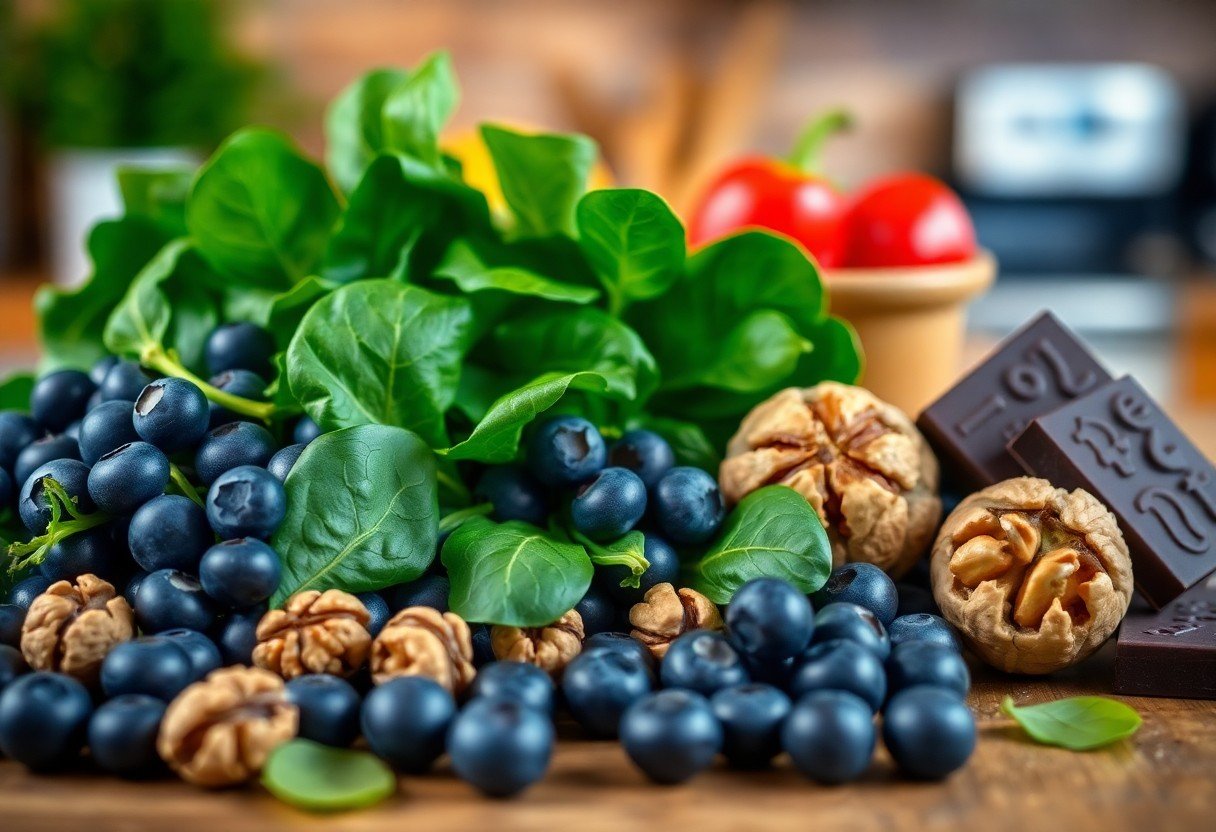As you strive to maintain a healthy lifestyle, reducing inflammation is key to preventing chronic diseases. You can take control of your diet to achieve this goal. By incorporating anti-inflammatory foods, you can significantly minimize the risk of illness and promote overall well-being. You will learn about the best foods to add to your diet to achieve a healthier you, and understand how these foods can help alleviate pain and discomfort associated with inflammation.
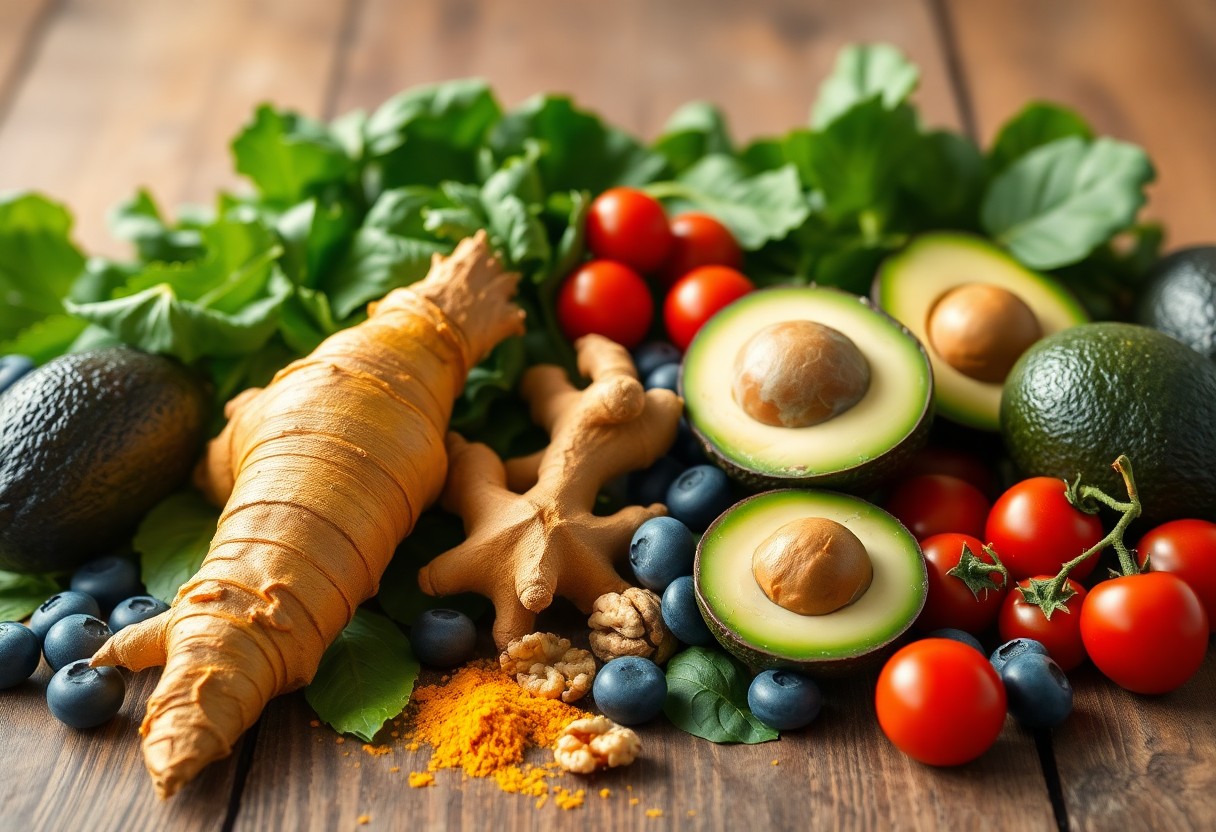
Key Takeaways:
To reduce inflammation and promote overall health, consider incorporating the following foods into your diet:
- Consume fatty fish like salmon, tuna, and mackerel, which are rich in omega-3 fatty acids that help reduce inflammation.
- Eat fruits such as berries, oranges, and pineapples, which are high in antioxidants and vitamin C that can help combat oxidative stress.
- Include leafy greens like spinach, kale, and collard greens in your diet, as they are packed with anti-inflammatory compounds and fiber.
- Use turmeric and ginger in your cooking, as they contain curcumin and gingerol, which have potent anti-inflammatory properties.
- Incorporate nuts and seeds like walnuts, chia seeds, and flaxseeds into your diet, which are rich in healthy fats and antioxidants that can help reduce inflammation.
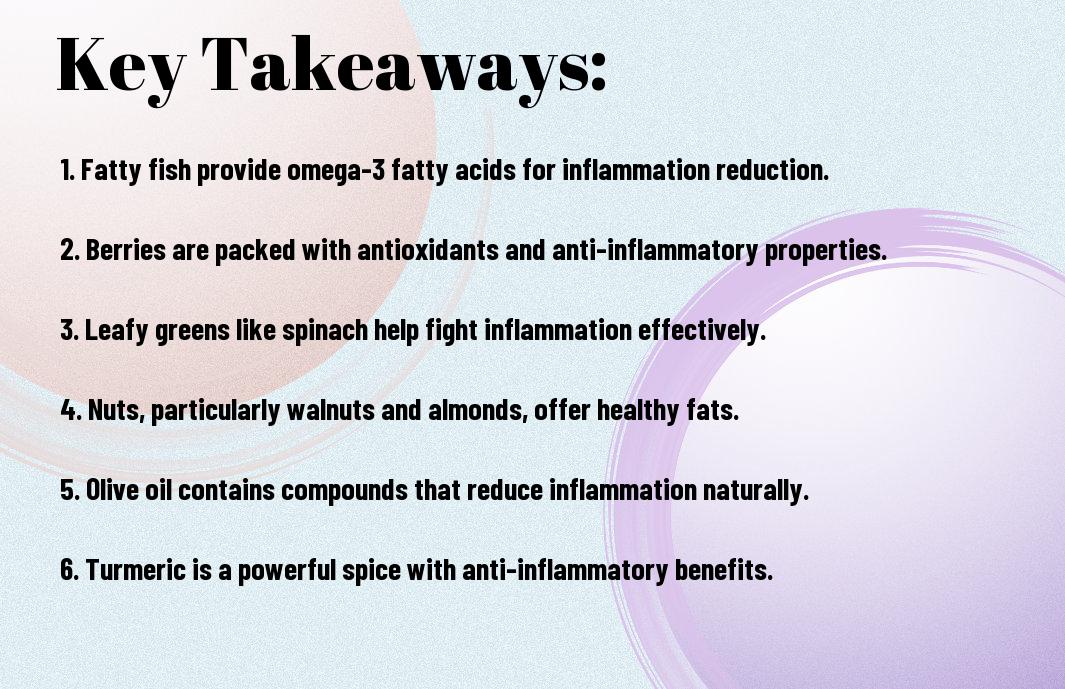
Fruits and Vegetables
A healthy diet rich in fruits and vegetables can help reduce inflammation in your body. You can add a variety of colorful fruits and vegetables to your meals to get the best benefits.
Berries and Leafy Greens
For instance, berries such as blueberries and raspberries are packed with antioxidants that can help reduce inflammation. You can also add leafy greens like spinach and kale to your salads and smoothies.
Other Anti-Inflammatory Options
Along with berries and leafy greens, you can also consider other anti-inflammatory options like turmeric and ginger. You can add them to your meals or take them as supplements after consulting with your doctor.
Other options like fatty fish, olive oil, and whole grains can also help reduce inflammation in your body. You can try incorporating these foods into your diet to experience the positive effects on your overall health, and reduce the risk of chronic diseases like heart disease and cancer.
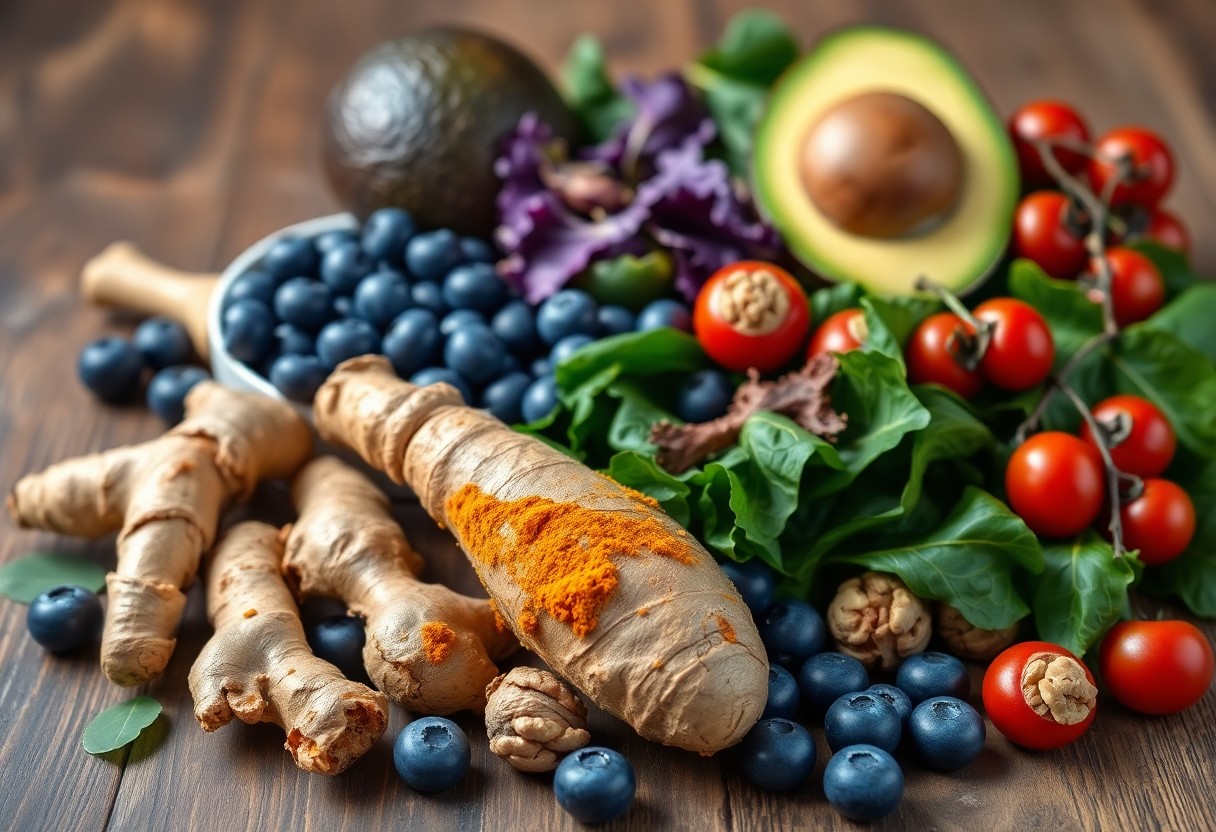
Proteins and Grains
Clearly, incorporating anti-inflammatory proteins and grains into your diet can have a significant impact on your overall health. You can find these beneficial foods in various forms, including lean meats, fish, and plant-based options. Adding them to your meals can help reduce inflammation and promote wellness.
Fatty Fish and Nuts
Beneath the surface of a healthy diet, you’ll find foods like fatty fish and nuts that are rich in omega-3 fatty acids and antioxidants. These nutrients can help lower inflammation and improve your overall health.
Whole Grains and Legumes
Behind the numerous health benefits of whole grains and legumes lies their ability to regulate blood sugar levels and reduce inflammation. You can add them to your diet in the form of brown rice, quinoa, and lentils to boost your fiber intake.
But what makes whole grains and legumes truly special is their ability to provide sustained energy and support healthy digestion. As you incorporate these foods into your diet, you’ll notice a significant reduction in inflammation and an overall improvement in your well-being. By making these simple changes, you can take the first step towards a healthier lifestyle.
Herbs and Spices
Keep in mind that certain herbs and spices can help reduce inflammation in your body. You can learn more about 12 Anti-Inflammatory Foods to Add to Your Diet and discover the benefits of incorporating them into your meals.
Turmeric and Ginger
Towards a healthier lifestyle, you can try adding turmeric and ginger to your diet, as they have potent anti-inflammatory properties that can help alleviate symptoms of various conditions.
Other Anti-Inflammatory Herbs
Beneath the surface of many herbs lies a wealth of medicinal benefits, and you can harness their power to reduce inflammation in your body.
Even with a small amount, consumption of herbs like basil, rosemary, and thyme can have a significant impact on your overall health, as they contain powerful antioxidants and anti-inflammatory compounds that can help protect you from chronic diseases.
Beverages
For a healthy and balanced diet, you should consider incorporating anti-inflammatory beverages into your daily routine. These drinks can help reduce inflammation and promote overall well-being.
Green Tea and Coffee
Fortuitously, green tea and coffee are two of the most popular anti-inflammatory beverages, with powerful antioxidants that can help protect your body against free radicals and inflammation.
Other Healthy Drinks
Closely, coffee alternatives like turmeric latte and ginger tea are also highly beneficial for reducing inflammation, and you can easily incorporate them into your daily routine.
To get the most out of these drinks, you should aim to consume them regularly and in moderation. By doing so, you can significantly reduce your risk of chronic diseases and promote a healthier lifestyle, and as you make these changes, you will start to notice a positive impact on your overall health and well-being.
Healthy Fats
Once again, incorporating healthy fats into your diet can help reduce inflammation, as outlined in the Anti Inflammatory Diet. You can start by adding foods rich in healthy fats to your meals.
Olive Oil and Avocado
Above all, after making a few simple changes, you can begin to notice the benefits of healthy fats, with olive oil and avocado being great sources, rich in antioxidants and necessary fatty acids.
Nuts and Seeds
Along with other healthy fats, nuts and seeds are a great addition to your diet, providing a boost to your heart health and helping to reduce inflammation.
Healthy options like almonds, walnuts, and chia seeds are packed with nutrients and can be easily incorporated into your daily meals, allowing you to take control of your health and make a positive impact on your overall wellbeing, by reducing the risk of chronic diseases.
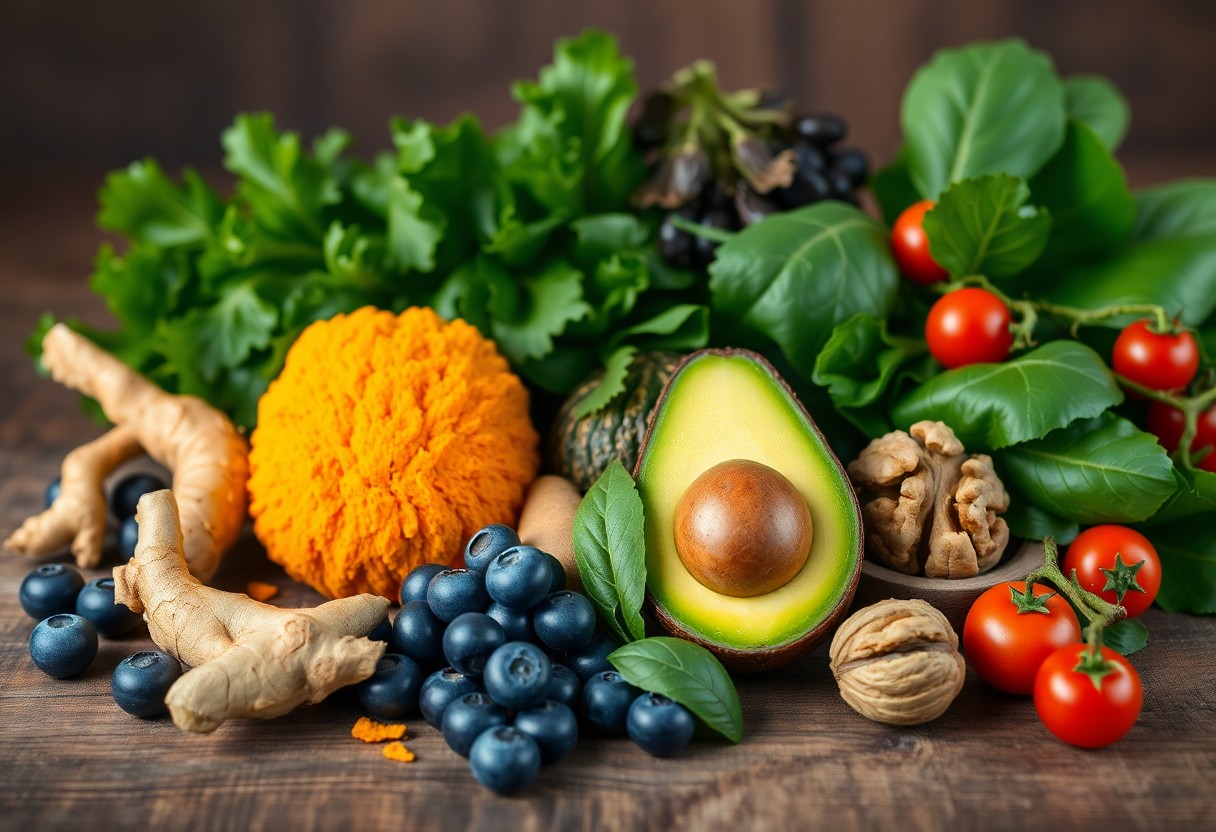
Dairy and Alternatives
Unlike other food groups, dairy and alternatives can have both positive and negative effects on inflammation. You can learn more about how your diet affects inflammation by visiting Can You Reduce Inflammation Through Your Diet? to make informed decisions.
Yogurt and Cheese
Around the time you start incorporating dairy into your diet, you may notice that yogurt with live cultures can help reduce inflammation, while excessive cheese consumption may have negative effects.
Plant-Based Alternatives
Around this time, you may consider adding plant-based alternatives to your diet, which can be a great way to reduce saturated fat intake and lower inflammation.
Cheese alternatives made from nuts and seeds can be a great option, as they are often low in calories and rich in healthy fats. As you explore plant-based alternatives, you’ll find that soy yogurt and almond milk can be great substitutions in your daily routine, helping you to manage inflammation and maintain a healthy diet.
Conclusion
Presently, you can begin to incorporate anti-inflammatory foods into your diet to experience their benefits. You can add foods like fatty fish, turmeric, and ginger to your meals to help reduce inflammation. By making these additions, you will be taking a proactive step towards improving your overall health and wellbeing, allowing you to maintain a balanced and healthy lifestyle.
FAQ
Q: What are some examples of anti-inflammatory foods that I can add to my diet to reduce inflammation?
A: There are several anti-inflammatory foods that you can add to your diet to help reduce inflammation. Some examples include fatty fish like salmon and sardines, which are rich in omega-3 fatty acids, as well as turmeric, ginger, and berries such as blueberries and raspberries. Leafy green vegetables like spinach and kale are also rich in antioxidants and have anti-inflammatory properties. Additionally, nuts and seeds like walnuts and chia seeds are high in healthy fats and fiber, which can help to reduce inflammation.
Q: How do omega-3 fatty acids found in fatty fish help to reduce inflammation?
A: Omega-3 fatty acids, particularly EPA and DHA, have potent anti-inflammatory effects. They work by inhibiting the production of pro-inflammatory molecules, which are molecules that promote inflammation in the body. Omega-3 fatty acids also help to reduce the levels of inflammatory markers, such as C-reactive protein, in the blood. This can help to alleviate symptoms of conditions like arthritis, autoimmune disorders, and other inflammatory diseases. Fatty fish like salmon, sardines, and mackerel are rich in omega-3 fatty acids, making them an excellent addition to an anti-inflammatory diet.
Q: What are some other anti-inflammatory spices and herbs that I can add to my diet?
A: In addition to turmeric and ginger, there are several other anti-inflammatory spices and herbs that you can add to your diet. Cinnamon, for example, has anti-inflammatory properties and can help to reduce inflammation in the body. Rosemary and thyme are also anti-inflammatory and can be added to soups, stews, and other dishes for added flavor and nutrition. Cayenne pepper, which contains capsaicin, can also help to reduce inflammation and alleviate pain. These spices and herbs can be added to a variety of dishes, from soups and stews to meats and vegetables.
Q: Can a diet rich in anti-inflammatory foods help to alleviate symptoms of chronic diseases like arthritis and diabetes?
A: Yes, a diet rich in anti-inflammatory foods can help to alleviate symptoms of chronic diseases like arthritis and diabetes. Foods that are high in antioxidants, fiber, and healthy fats, such as fruits, vegetables, and whole grains, can help to reduce inflammation and improve overall health. Omega-3 fatty acids, in particular, have been shown to reduce inflammation and alleviate symptoms of rheumatoid arthritis. Additionally, a diet rich in fiber can help to regulate blood sugar levels and improve insulin sensitivity, which can help to manage diabetes.
Q: How can I incorporate anti-inflammatory foods into my diet if I have dietary restrictions or preferences, such as being vegetarian or vegan?
A: Incorporating anti-inflammatory foods into your diet is easy, even if you have dietary restrictions or preferences. If you’re vegetarian or vegan, you can focus on plant-based sources of omega-3 fatty acids, such as flaxseed, chia seeds, and walnuts. You can also include a variety of fruits and vegetables, such as berries, leafy greens, and other antioxidant-rich foods, in your diet. Turmeric, ginger, and other anti-inflammatory spices and herbs are also vegan-friendly and can be added to a variety of dishes. Additionally, many plant-based milk alternatives, such as almond and soy milk, are fortified with omega-3 fatty acids and other anti-inflammatory nutrients.


